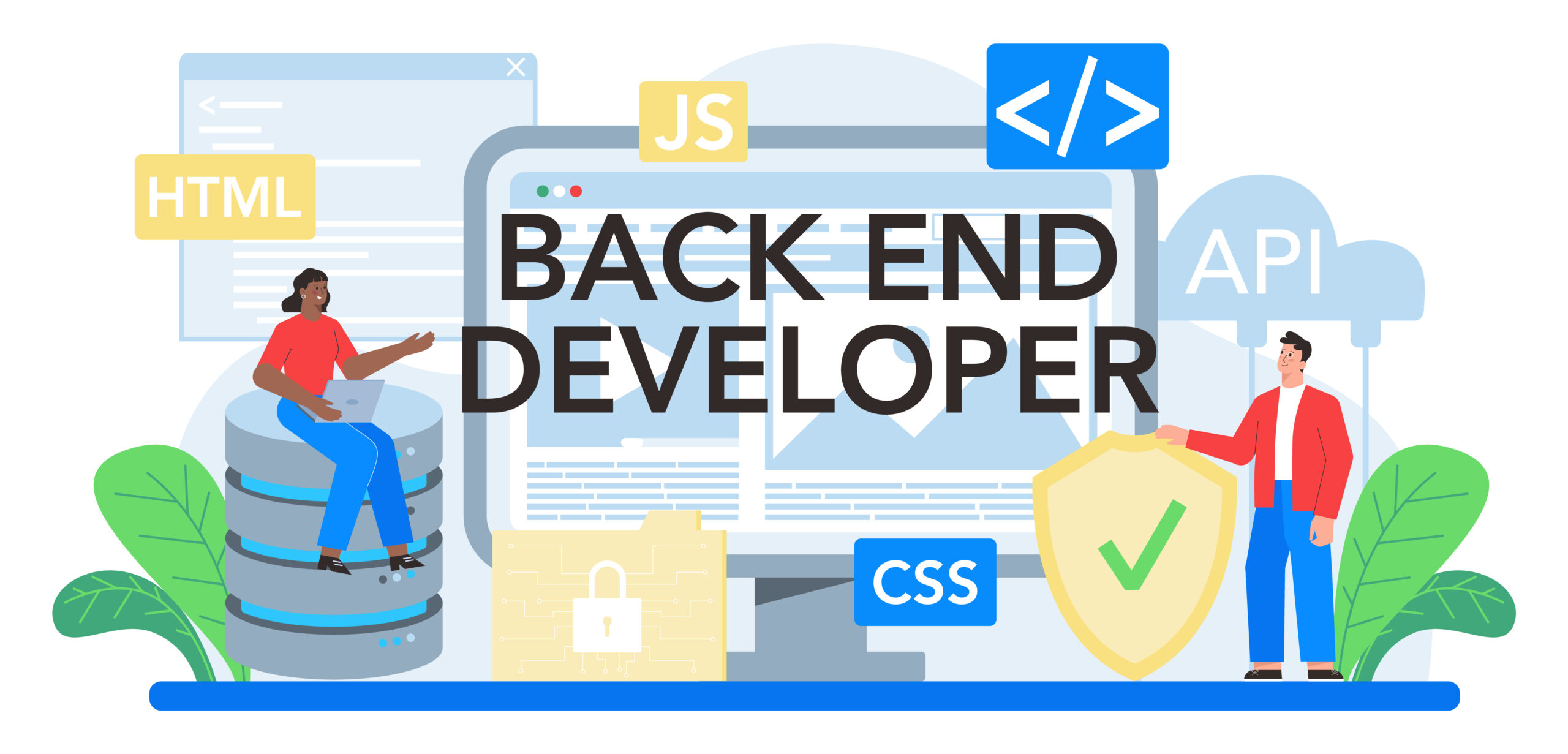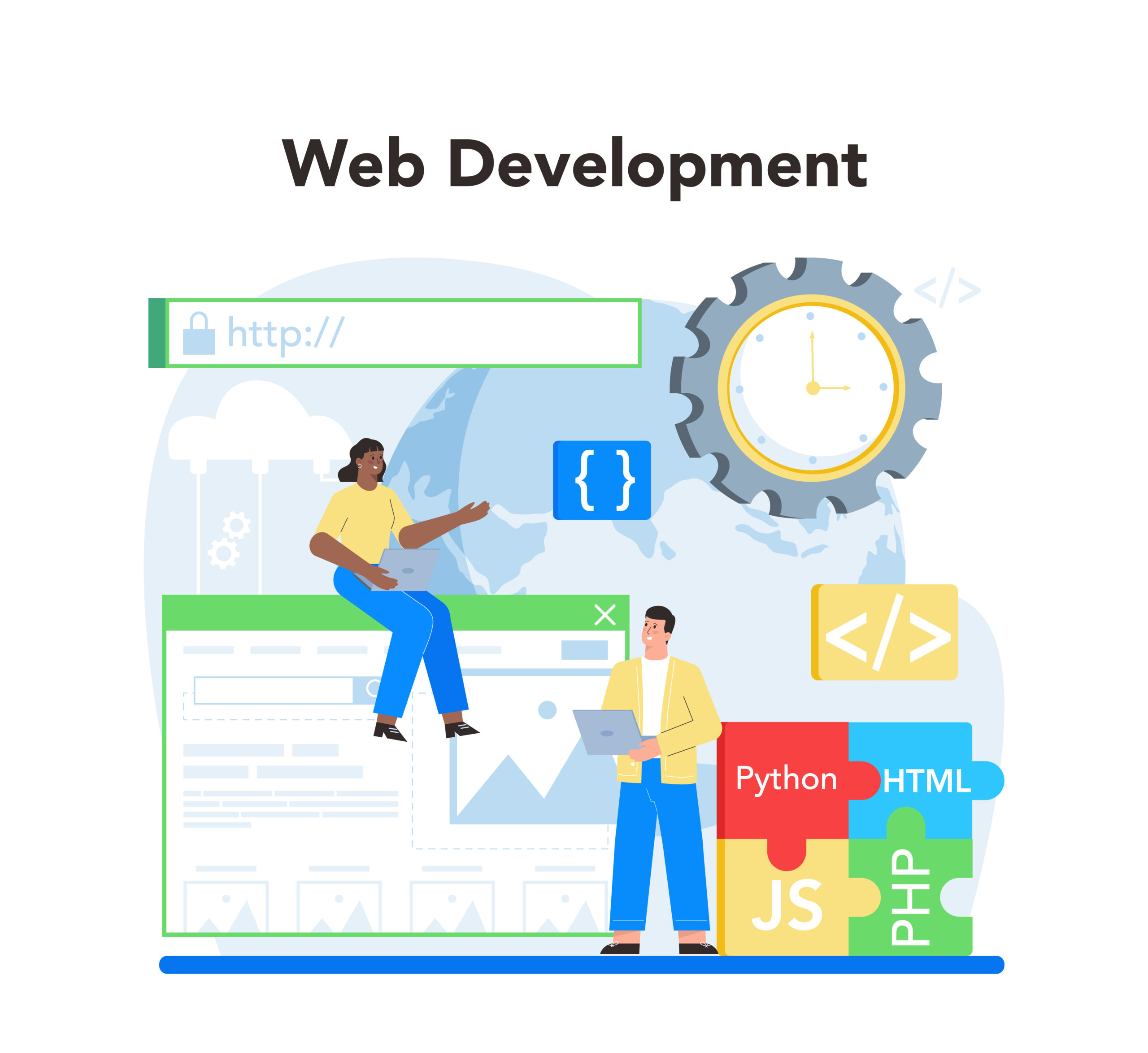As the internet continues to revolutionise industries and redefine communication, web development has emerged as a critical cornerstone of modern business and innovation. From e-commerce and social networking to cloud computing and online education, the demand for skilled web developers has soared to new heights. In this fast-paced, technology-driven era, harnessing the power of web development can be the key to unlocking a world of possibilities and propelling yourself towards a successful and rewarding future.
Job Outlook For Web Developers
The demand for web developers is high in many industries, and due to a shortage of software and web development skills, most experts expect the demand to remain high.
Web developer employment is expected to grow by 8% by 2029, according to the U.S. Bureau of Labour Statistics, a rate significantly greater than that of other occupational roles. Furthermore, there is no evidence suggesting that demand will decline.
With the growth of e-commerce (online shopping is expected to grow faster than the entire retail industry) and the increasing use of mobile searches, demand for web and software developers will only continue to increase. Hence, those who want to excel in their career in this field should enrol for a web design diploma from a reputable university.
Why Become A Web Developer?
You may choose to pursue a career as a web developer after completing a web development course because there are many high-paying positions available, web developers can work remotely, and web development positions typically provide an excellent work-life balance. Despite the fact that web development obviously encompasses a wide range of specialisations, the majority of web development positions are regarded as excellent employment in terms of pay, advantages, and the chance to improve.
But with the constant need for learning, problem-solving, and critical thinking, becoming a web developer is not without its difficulties.
Web Developer Job Satisfaction
Having a skill set that is in demand has many practical benefits, but working as a web developer also has many non-financial benefits.

In Stack’s survey of developers around the world, 72.8% of respondents claimed they were content with their jobs (as opposed to 18.9% who expressed dissatisfaction, with the remainder of respondents feeling indifferent). Positions for online and software engineers were among the top 5 positions in the nation, according to U.S. News & World Report, and a substantial number of powerful media sites responded positively to the question, “Is web development a good career?”
Web and software developers also have the option of working for an agency, internally for a business, or for themselves as independent contractors. Independently and cross-functionally, web developers frequently collaborate with design and product teams. The work-life balance is extremely flexible because web developers, particularly those who freelance for numerous clients, may practically work anywhere there is an internet connection.
Keep Learning and Upgrading Yourself
Web developers must keep up with any significant new programming languages, web development tools, or trends because technology is constantly evolving. To be competitive, even coding specialists with extensive degrees in computer science will need to constantly develop their skills. It’s not unexpected that Stack’s survey discovered a connection between technological proficiency and pay. It is true that success as a Web Developer does necessitate a dedication to lifelong learning, which is advantageous for the majority of workers in the industry.
Online forums, digital skill training programmes, and blogs are the top three places Web and Software Developers use to research new concepts or acquire web development techniques, according to the BrainStation Digital Skills Survey.
Job Roles
These days developers often focus on either front-end (what a user sees when using a website or online application) or back-end (server-side) development; those with the versatility to do both are referred to as full-stack developers.
People who don’t work in technology may find it difficult to understand the distinction between those occupations and the countless other roles related to web and software development. Some of the positions in web development are listed below:
- Front-End Developer: Instead of just designing, a front-end web developer concentrates on HTML, CSS, JavaScript, and light back-end work. A Front End Developer will occasionally implement a Web Designer’s suggestions. While some front-end developers require some design skills, they also need to have an in-depth understanding of other technologies.
- Back-End Developer: Although unseen to users, the job of a back-end web developer is essential to a website’s operation. Python, Ruby, and SQL are just a few of the programming languages that back-end developers frequently use. With the aid of coding languages like HTML5, C++, and Java, other back-end developers are concentrating on creating mobile applications.

- Web Designer: It may seem apparent, but if “designer” is in the job description, it means that the position includes designing for the web. Design tools, HTML, CSS, and basic JavaScript are among the specific abilities required for web designers.
- UX Designer: Users’ interactions with websites are closely examined and studied by UX (User Experience) designers, who then make system modifications and test the results.
- Despite the fact that all those on this list must take user experience into consideration, UX designers are obsessed with it.
